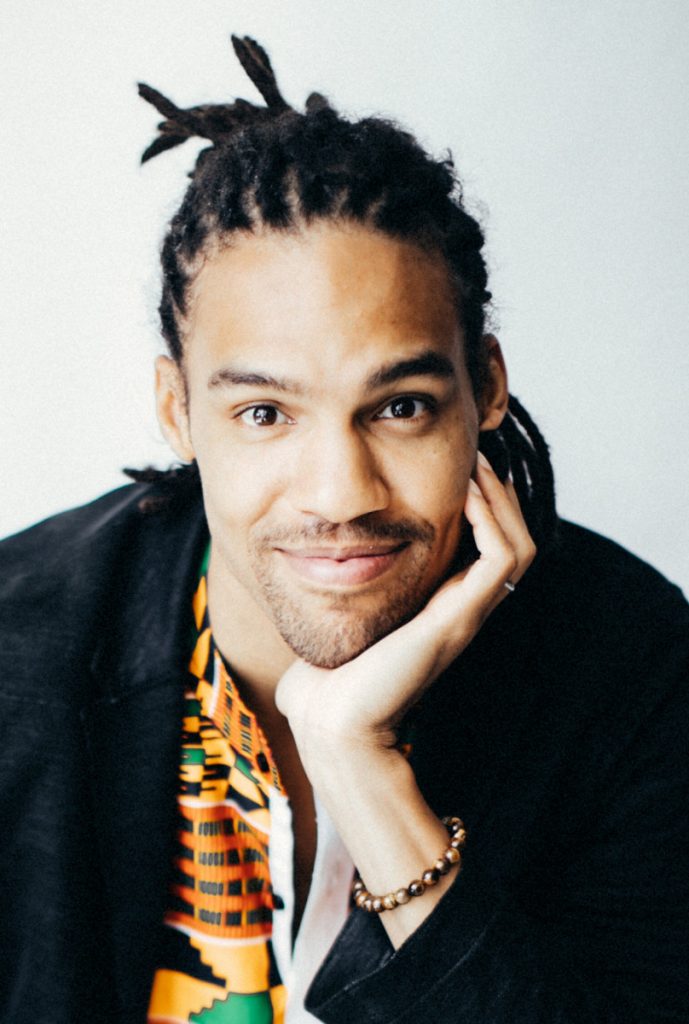
North Carolina native Pierce Freelon wears many artistic hats — he’s a Grammy-nominated children’s music artist, picture book author and podcaster; filmmaker, music educator and former Durham City Councilman. He’s a changemaker and entrepreneur; one of his latest forays is into the world of ice cream — space ice cream, actually — and at the heart of his work is a drive to project a bold, creative future for children and, as he told Billboard in 2021, expand the complexion of children’s and family music.
“(It’s) a space that is in radical need for a transformation and healing,” he said then.
The son of Phil Freelon, architect of the National Museum of African American History and Culture, Freelon wrote for his first Grammy-nominated children’s album Black to the Future that “my Dad’s legacy, through the Blacksonian, was to protect Black history. Our job is to protect Black futures.” He’ll talk about this work at 3:30 p.m. today in the Hall of Philosophy in the Week Five installment of the African American Heritage House’s Chautauqua Speaker Series.
Freelon’s work, particularly for his albums Black to the Future and AnceStars — created with his mother, the jazz vocalist and composer Nnenna Freelon — have been featured on NPR, Billboard and “The Today Show.” He’s also the author of two children’s picture books with Little, Brown Books for Young Readers — Daddy and Me: Side by Side and Daddy-Daughter Day — and co-creator of the PBS Kids podcast “Jamming on the Job.”
Born into a family of creatives, Freelon attended Durham School of the Arts; in an Op-Ed for Indy Week published in May, he spoke out against the school’s proposed move out of downtown Durham.
“I was able to explore my artistic strengths in the music and theatre departments and quickly made friends with a variety of students and faculty from different socio-economic and cultural backgrounds,” he wrote. “Because of the school’s location, we could feel the pulse of downtown Durham. We were part of it.”
Situated at the intersection of several neighborhoods — some affluent and predominantly white, others historically Black and increasingly Latino — meant that Freelon and his fellow students were “raised by a community that was ethnically, economically, and culturally diverse, and in turn we poured magic back into the community.”
With that background, Freelon has traveled the world educating youth about hip-hop, beat-making and Black culture. He took those experiences home to found Blackspace, a digital makerspace offering teens free programming rooted in Afrofuturism. The co-founder of “Beat Making Lab,” an Emmy Award-winning PBS web series, Freelon is writer, composer and co-director of the animated series “History of White People in America,” an official selection of the Tribeca Film Festival. A former board member of the North Carolina Arts Council, Freelon has taught in the departments of political science, music, and African, African American and Diaspora Studies at the University of North Carolina at Chapel Hill and North Carolina Central University.
In discussing Black to the Future with Billboard, Freelon evoked the work of Octavia Butler.
“In her book Parable of the Sower, her character Lauren Olamina says, Everything you touch, you change. Everything you change, changes you,’ ” he told Cyndey Lee. “And when I think about that in the context of Afrofuturism, I think about the way in which Harriet Tubman changed herself, her community, people that she worked with to fight a struggle for liberation. I think about Ida B. Wells who changed how we talk and think about lynching and really revolutionized that space. (I think about) changemakers, folks who dwell in the sacred healing practice of transformation.”
So when it comes to radically transforming the scope of children’s music, Afrofuturism is the “perfect vessel.”
“I know that my voice is changing the shape and the scope of the conversation in children’s music. I know it’s changing the folks who are listening to the music, it’s changing the industry, it’s changing me,” he said in 2021. “I think that’s what Afrofuturism is about, it’s about shaping change.”




